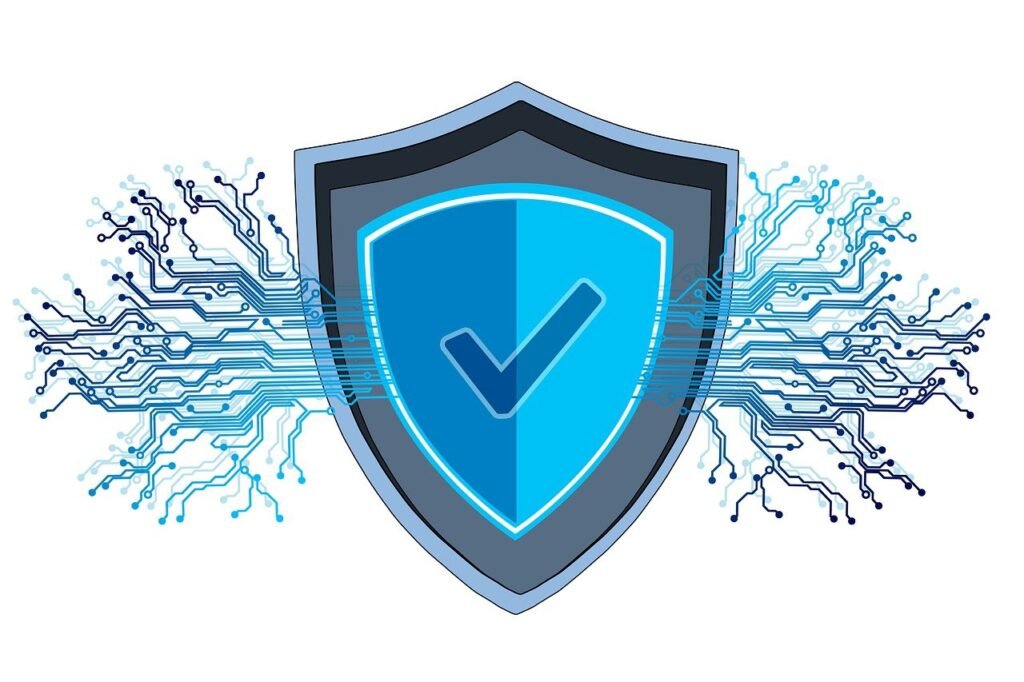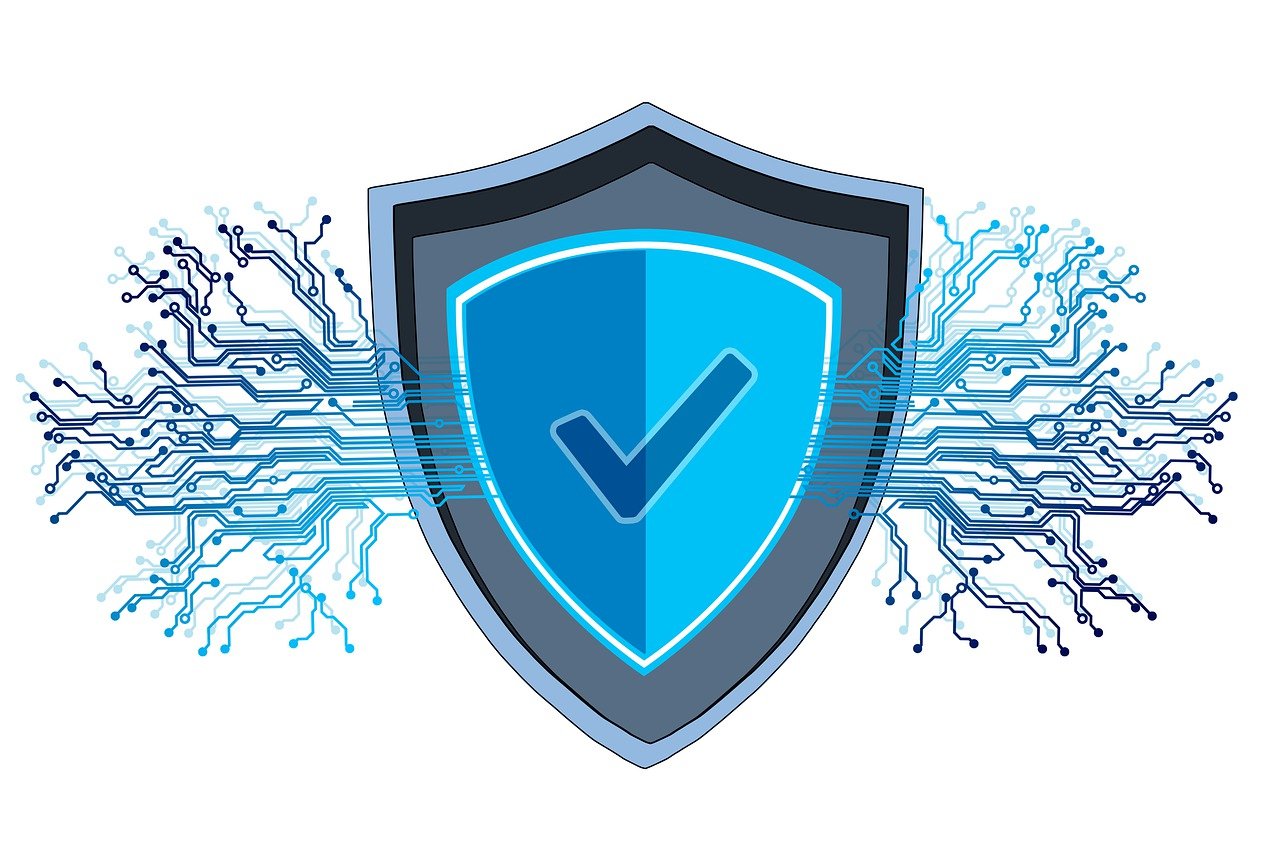Antivirus software plays a crucial role in protecting your computer from various online threats, but have you ever wondered how it actually affects the performance of your system? In this article, we will explore the impact of antivirus software on your system’s overall performance, ranging from the resources it takes up to the potential slowdown it may cause. Understanding this relationship will help you make informed decisions when it comes to choosing and optimizing your antivirus software, ensuring that both your system and your data remain secure without sacrificing speed and efficiency.

Introduction
When it comes to protecting your computer from threats, antivirus software plays a crucial role. However, many users wonder about the impact of these security programs on system performance. In this article, we will provide a comprehensive overview of antivirus software and its impact on your computer’s speed, resource usage, and overall performance.
Antivirus Software Overview
Definition of antivirus software
Antivirus software, also known as anti-malware software, is designed to detect, prevent, and remove malicious software from your computer. It scans files, programs, and data in real-time to identify and eradicate potential threats such as viruses, worms, trojans, ransomware, and spyware.
Purpose of antivirus software
The primary purpose of antivirus software is to protect your computer and data from security threats. By identifying and eliminating malicious software, antivirus programs safeguard your system, prevent data loss and corruption, and protect your privacy.
Types of antivirus software
There are various types of antivirus software available in the market. These include traditional signature-based antivirus, heuristic antivirus, behavior-based antivirus, and cloud-based antivirus. Each type has its own approach to threat detection and removal, and the choice of software depends on your specific needs and preferences.
Popular antivirus software
There are several well-known antivirus software options available, including Norton, McAfee, Avast, AVG, Bitdefender, and Kaspersky. These software providers offer comprehensive protection against malware and are constantly updating their databases to stay ahead of emerging threats.

Antivirus Software and System Performance
Impact on system speed
One concern many users have is whether antivirus software will slow down their computer. While it is true that antivirus programs do consume system resources, modern software has significantly improved in terms of performance impact. The impact on system speed is generally minimal, especially on newer, more powerful computers. However, on older machines or low-end hardware, the impact may be more noticeable.
Resource usage and system requirements
Antivirus software requires certain system resources and has specific system requirements. These requirements vary depending on the software’s features, scanning methods, and real-time protection components. It is important to review the system requirements before installing antivirus software to ensure compatibility and optimal performance.
Scanning and monitoring processes
Antivirus software performs regular scans of your files, programs, and system memory to detect and remove threats. The depth and frequency of these scans can be adjusted based on your preferences and the level of security you require. Additionally, antivirus software continuously monitors your system for any suspicious activity or behavior, ensuring real-time protection against emerging threats.
Real-time protection and background tasks
Real-time protection is a key feature of antivirus software. It constantly monitors your system and blocks any potentially harmful activity in real-time. While this feature ensures your computer is protected at all times, it may have a small impact on system performance due to background tasks running in the background. However, modern antivirus software is designed to minimize this impact and provide a seamless user experience.
Factors Influencing Antivirus Software Impact
Hardware specifications
The performance impact of antivirus software can vary depending on your computer’s hardware specifications. More powerful CPUs and ample RAM can handle the resource requirements of antivirus software more effectively, resulting in minimal impact on system performance. On the other hand, older or less powerful hardware may experience a more noticeable slowdown when running antivirus software.
Software configuration
The configuration of your operating system and other software installed on your computer can also influence the impact of antivirus software. Some software programs may conflict with certain antivirus software, leading to reduced performance or compatibility issues. It is important to ensure that your software and operating system are up to date and compatible with your chosen antivirus solution.
Comparison of antivirus software
Different antivirus software may vary in terms of their impact on system performance. Some software providers prioritize optimizing their software to minimize performance impact, while others may have a slightly higher impact due to additional features or scanning methods. It is recommended to research and compare different antivirus software options to find the one that strikes the right balance between protection and performance for your system.
User settings and customization
Antivirus software often provides users with various settings and customization options. These options allow users to tailor their antivirus software’s performance to their specific needs. By adjusting settings such as scan schedules, the depth of scans, and system resource allocation, users can optimize the performance of their antivirus software and minimize the impact on their system.

Performance Benchmarks and Testing
Standardized performance testing methodologies
To assess the impact of antivirus software on system performance, standardized testing methodologies are used. These methodologies involve running specific performance benchmarks and measuring the impact of antivirus software on system speed, resource usage, and overall performance. Various organizations and independent testing labs provide these performance benchmarks, allowing users to compare antivirus software based on their impact on system performance.
Comparison of antivirus software performance
Through performance testing, antivirus software can be compared based on their impact on system performance. Test results can provide users with valuable insights into which antivirus software has the least impact on their computers. However, it is important to note that individual results may vary depending on hardware specifications, software configuration, and user settings.
Effectiveness of performance optimizations
Antivirus software providers continually work on optimizing their software to minimize the impact on system performance. These optimizations include efficient scanning algorithms, resource allocation, and streamlining background processes. By staying up to date with the latest versions of antivirus software, users can benefit from these performance optimizations and ensure a smooth and secure computing experience.
Mitigating Performance Impact
Adjusting scan schedules and settings
One way to mitigate the performance impact of antivirus software is to adjust scan schedules and settings. Most antivirus software allows users to customize the frequency and depth of scans. By scheduling scans during periods of low computer usage or adjusting settings to perform lighter scans, users can reduce the impact on system performance while still ensuring adequate protection.
Reducing background process priority
Antivirus software often runs background processes to provide real-time protection and monitoring. Users can manage the priority of these processes to minimize performance impact. By setting antivirus software to run with lower priority, other system processes can be prioritized, resulting in a more responsive computer.
Utilizing gaming or performance modes
Many antivirus software providers offer gaming or performance modes specifically designed to minimize the impact on system performance. These modes temporarily adjust the antivirus software’s settings to prioritize system performance while still providing adequate protection. Utilizing these modes during resource-intensive activities, such as gaming or video editing, can significantly reduce the impact on system performance.
Optimizing antivirus software configuration
Optimizing your antivirus software’s configuration can also help mitigate the performance impact. By fine-tuning settings such as exclusions, only scanning specific file types, or reducing the number of monitoring features enabled, users can strike a balance between system performance and security. However, it is essential to understand the potential trade-offs in terms of reduced protection when making these optimizations.
Balancing Protection and Performance
Importance of effective virus detection
While minimizing the impact on system performance is crucial, it is equally important to consider the effectiveness of virus detection and removal. Antivirus software’s primary purpose is to protect your computer from threats, and a lightweight solution that compromises on virus detection may leave your system vulnerable. Striking a balance between protection and performance is key in ensuring both the security and optimal functioning of your computer.
Trade-offs between protection and performance
There is an inherent trade-off between protection and performance when it comes to antivirus software. A more robust and comprehensive antivirus solution may have a slightly higher performance impact due to its advanced scanning methods and real-time protection features. On the other hand, a lightweight antivirus software may provide better system performance but could potentially miss certain threats. Users should carefully consider their priorities and the level of risk they are willing to accept.
Finding a suitable antivirus software
When choosing an antivirus software, it is essential to find one that adequately protects your system while minimizing the impact on performance. Evaluating the software’s reputation, customer reviews, and performance benchmarks can help you ensure you select a reliable and efficient antivirus solution. Additionally, considering the software’s compatibility with your hardware and software configuration is crucial to finding a suitable solution.
Evaluating performance impact in relation to system requirements
Every computer has different system requirements, and the performance impact of antivirus software can vary accordingly. When evaluating the performance impact, it is important to consider your computer’s specifications and ensure that the chosen antivirus software meets the required resources. By aligning the software’s performance impact with your system’s capabilities, you can optimize the overall performance of your computer.
User Best Practices
Regular updates and patches
To ensure the best performance and protection, it is essential to keep your antivirus software up to date. Antivirus software providers regularly release updates and patches to improve performance, enhance security, and address emerging threats. By regularly updating your antivirus software, you can take advantage of these improvements and ensure optimal system performance.
Scanning and removing threats
Regularly scanning your computer for threats is another best practice to maintain system performance. By proactively scanning and removing any detected threats, you can prevent their potential impact on system speed and performance. It is recommended to schedule regular scans or perform manual scans when necessary to keep your computer clean and optimized.
Safe browsing habits
Practicing safe browsing habits is essential in maintaining system performance and security. Avoid clicking on suspicious links, downloading files from untrusted sources, and visiting potentially dangerous websites. These actions can help prevent malware infections, reducing the need for resource-intensive scans and ensuring optimal performance.
Selecting lightweight antivirus software
If system performance is a top priority, selecting lightweight antivirus software can significantly reduce the impact on your computer. Lightweight antivirus software often focuses on essential protection features and minimizes resource usage. By carefully researching and comparing different antivirus solutions, you can identify lightweight options that offer satisfactory security without compromising system performance.
Antivirus Software Trends
Artificial intelligence and machine learning
Artificial intelligence (AI) and machine learning have become prominent trends in antivirus software. These technologies enable antivirus programs to analyze and detect threats more accurately and efficiently. By continuously learning from new data and patterns, AI-powered antivirus software can provide enhanced protection while minimizing the impact on system performance.
Cloud-based antivirus solutions
Cloud-based antivirus solutions have gained popularity in recent years. These solutions leverage the power of cloud computing to offload resource-intensive tasks to remote servers, reducing the impact on system performance. By utilizing real-time cloud scanning and threat analysis, cloud-based antivirus software can provide effective protection without relying heavily on local system resources.
Behavioral analysis techniques
Behavioral analysis techniques have also emerged as a trend in antivirus software. Instead of solely relying on signature-based detection, behavioral analysis looks for suspicious behaviors and actions that indicate the presence of malware. By analyzing and monitoring system behavior, antivirus software can detect and prevent unknown threats, thereby minimizing the performance impact associated with traditional scanning methods.
Customizable scan and protection options
Antivirus software providers are increasingly offering customizable scan and protection options to cater to different user preferences. These options allow users to prioritize certain areas or file types for scanning, exclude trusted applications or files, and adjust the depth or frequency of scans. By customizing these options, users can optimize both the performance and level of protection provided by their antivirus software.
Conclusion
Antivirus software is an essential tool in protecting your computer from security threats. While there may be some impact on system performance, modern antivirus software has significantly improved in terms of minimizing these effects. By understanding the factors that influence antivirus software’s impact, utilizing best practices, and considering emerging trends, users can strike a balance between protection and performance, ensuring a secure and optimized computing experience.
